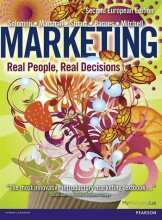History- Medicine through time
24 important questions on History- Medicine through time
What are Factors that influenced medicine in the Ancient World.
Individuals- Hippocrates and Galen.
Religion- banned dissection but Egyptians learnt through mummification, always believed Gods made you better.
Education- The Greeks encouraged natural solutions and the Egyptians developed writing.
Trade and Communication- as trade increased, there was an exchange of ideas.
By about what year did versions of the work of Galen return to Britain?
Who could treat you in the medieval period?
Monasteries and local women
Hospitals (only 10% cared for ill)
Apothecaries- sold drugs and medicine
- Higher grades + faster learning
- Never study anything twice
- 100% sure, 100% understanding
What diagnosis and treatments were available in the Medieval period?
theory of opposites
herbal remedies
supernatural treatments
How was surgery in the Medieval Period?
treatments still few and simple as pain, bleeding and infection not controlled.
What did they believe caused the Black Death and disease?
miasma theory
blocked digestive system
invisible spirits in air
gods punishments
effects of planets
Factors that influenced medicine in the Medieval Period
religion- built universities and hospitals but only taught incorrect work of Galen.
communications- crusades allowed exchange of ideas with arab doctors.
government- some laws in cities and towns to clean up however not enforced and king had no money to pay for improvements.
What new ideas did the Renaissance lead to?
Led to questioning of Hippocrates and Galen.
What was the Printing Press?
speeded up copying and the spread of new ideas within the renaissance.
What were Vesalius discoveries?
Became a professor of surgery at Padua
Wrote books on his observations.
corrected Galen- proved there were no holes in the septum, proved there was one piece in the jaw bone.
What were Pares discoveries?
He invented a method of tying off amputation vessels with ligatures instead of cauterisation.
Invented ointment for gunshot wound instead of burning oil.
What were Harveys discoveries?
observed animals in action and related to humans
in 1628 he published a book showing blood was going around and around unlike what Galen thought.
he also proved that there is a difference between arteries and veins.
The Great Plague of London 1665
doctors chemists and priests were more likely to get the disease than most.
the Great fire of London in 1666 sterilised large parts of London killing the Plague bacteria
What factors affected the Renaissance?
wars- public health was made worse
''education: more literacy and schools
printing- helped with the spread of ideas,
ancient learning- renewed interest in ancient writings.
art- more realistic
machinery- improvements in clocks, watches and pumps.
wealth- money to spend on luxuries
How was the Germ Theory discovered?
What were the problems of surgery in the 1800s
Joseph Lister and Antiseptics
What was the result of Lister's discovery
How did WW1 improve medicine?
X-rays- find bullets and shrapnel lodged in body. Government paid
Blood Transfusion- used effectively for the first time after blood types were discovered in 1900.
How did WW2 improve medicine?
Rationing- healthy eating
penicillin- first antibiotic
skin grafts- further improvements
fighting poverty
government- improved services.
Why was infant mortality so high
How was Penicillin discovered
What did Florey and Chain do?
How was Penicillin developed
Chance- that penicillin came in through the window.
Individual Genius
Government
The question on the page originate from the summary of the following study material:
- A unique study and practice tool
- Never study anything twice again
- Get the grades you hope for
- 100% sure, 100% understanding






























